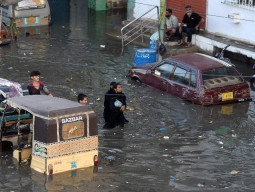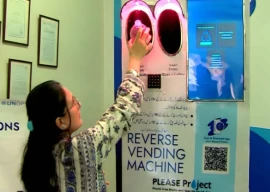
As compared to last year, Polyclinic witnessed a 20 per cent surge in the number of patients complaining about stomach problems due to consumption of unhygienic food and overeating during Ramazan.
“Since the beginning of Ramazan, the emergency ward has been handling a large number of patients with upset stomachs, heartburn, diarrhoea and nausea, especially during iftar and sehri,” head of emergency department at the Polyclinic Dr Tanveer Malik said while talking to The Express Tribune.
He said that in the last four days or so, the hospital received 120 to 130 patients on an average and all the beds were occupied with them.
“Every night, we keep a stock of 150 injections in the emergency ward to deal with patients having stomach-related issues and the next day, we are left with only 20 to 25 injections.”
Dr Malik said that the main reason behind the surge was overeating by people during iftar and sehri. “People usually prefer to buy food items from the market and lack of hygiene remains an issue.”
After staying hungry for more than 12 hours while fasting, people try to fill their stomach within a minute by eating fatty foods which obviously disturbs their digestive system, he aaded.
Health Awareness Society Director Dr Samia Babar said that the intake of fried food such as pakoras, samosas and kachori increases the risk of stomach diseases as people usually get buy them from shops rather than making them at home.
“People stand in long queues to get their desired food items from stalls in the market, ignoring the fact that their quality in term of hygiene remains highly questionable. The oil, storage place ans source of water used for preparing the food items can make peopel sick,” she said.
Dr Babar expressed surprise at the lack of seriousness exhibited by authorities in keeping a check on the quality of food items being sold at every nook and corner of city during Ramazan.
“The moment they hear the azan, people start eating and drinking as if they have never eaten before.” Actually, people think that since they have not eaten anything for 16 hours, they need to overeat to regain their lost energy, she said. People should break their fast with one or two dates followed by a drink and have iftari after a break of five minutes, she suggested.
Published in The Express Tribune, July 5th, 2014.


















COMMENTS
Comments are moderated and generally will be posted if they are on-topic and not abusive.
For more information, please see our Comments FAQ